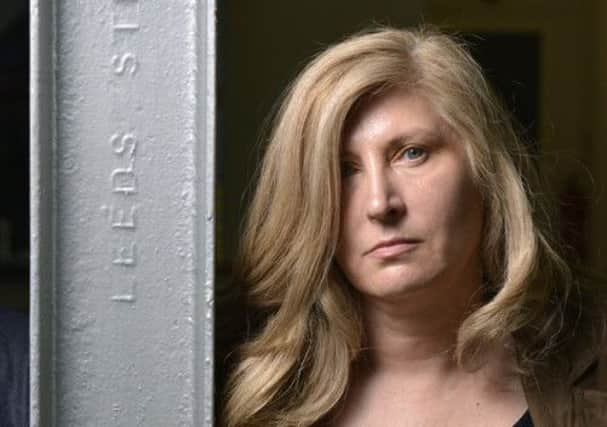Alice Nutter: A career of writing, music and politics


It might seem an odd phrase to use: but it seems somehow unfair.
Most people struggle to discover success in one field, let alone one artistic field. Alice Nutter has conquered several.
Advertisement
Hide AdAdvertisement
Hide AdFirst, with anarchist pop band Chumbawamba she travelled from her Leeds base around the world with the music she and the band made. Then she quit the pop star life and pursued a new career as a writer. After winning high praise for her work on television, she now returns to the stage, where her writing career began, and already the signs are that she might well have another hit on her hands.
Nutter is the Burnley-born Leeds adopted writer who appears to have lived several lifetimes already – a number of them very exciting. When still a young woman she moved into a squat in Armley in 1982, the punk rock lifestyle was the allure, but the sense of community, built around shared political ideals, was the reason she stayed.
It was from the community who lived in the squat that the band Chumbawamba, that was to have a significant and lasting effect on Nutter’s life, was to emerge.
“Punk rock had a huge effect on me, the fact that you could be creative and be in a ‘good’ gang,” she says.
Advertisement
Hide AdAdvertisement
Hide Ad“For me, being in Chumbawamba and living communally changed everything. We had shared money, shared ideals and were very focused. Suddenly I was able to channel my energy. Being with those people was such a good example.”
It may come as a surprise to hear Nutter talk of being a member of an anarchist pop group, made notorious for pitching a bucket of icy water over John Prescott at the 1998 Brit Awards, as being ‘such a good example’. But for the singer being a member of Chumbawamba was about more than being in a band – it was clearly a family.
“The Miners’ Strike was a pivotal event that changed Chumbawamba,” she says.
“We went from being anti- war, animal rights activists to a group of people who really started to understand the way the world functioned. We were completely immersed in the strike. It changed our politics and us.
Advertisement
Hide AdAdvertisement
Hide Ad“Dance music also changed Chumbawamba. We started playing the sort of music we were listening to. We always tried to do what we wanted rather than what was expected of us, which goes someway to accounting for the longevity.”
In 1997 the band had the biggest hit of its career with Tubthumping, the anthemic song which was a smash around the world. Nutter, while proud, was frustrated: “We got to number two in the charts in the UK twice – thwarted first by Men In Black and then Diana dying. That was a big deal. In fact, it seemed a much bigger deal to us than getting to number 1 in America and selling 5 million albums – that was just surreal.”
Despite the band being a way of life as much as a job, Nutter always wanted to try her hand at writing. She quit in 2004 to complete a course in plawriting at West Yorkshire Playhouse. The band’s success had given her financial freedom to try get her writing career off the ground, which it did – in spectacular fashion.
Within a couple of years she was working alongside Jimmy McGovern on The Accused and next week returns to the stage, with her new play, My Generation.
Advertisement
Hide AdAdvertisement
Hide AdThe play draws on the two decades Nutter spent living in a commune and her involvement in radical politics in Leeds.
Directed by Max Webster, making his Playhouse directorial debut, this witty family saga is set to an explosive mash-up of the best pop from across four decades and reunites its writer with fellow former band member Harry Hamer who leads a three-piece band live on stage.
Photographs of a generation
A photographic exhibition, curated by East Street Arts and organised to run alongside the performance of My Generation, has gone on display this week.
Photographs taken by school friends Andrew Bannerman-Bayles and Andrew Medcalf, documenting the thriving punk and local squat scene in the 1980s make up the exhibition.
Advertisement
Hide AdAdvertisement
Hide AdThe images span from 1984-1991 and are on display at the Newlyn Gallery, West Yorkshire Playhouse, and The Reliance, North Street, Leeds, to Oct 27.
My Generation, West Yorkshire Playhouse, to Oct 26. Tickets 0113 2137700.